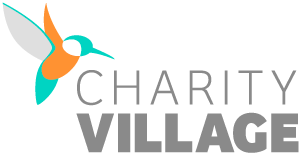Want to learn more on this topic? We’ve partnered with the author to present a free webinar on Thursday, August 13. Click here for more details and to register.
By the beginning of April 2020, half of humanity, 3.9 billion people in 90 countries, were in lock down due to the COVID-19 pandemic. This sudden shift in day-to-day personal and work life happened while individuals and organizations were unprepared. Now, more and more countries are cautiously opening up social and economic activity. Employers are eager to get back to business and individuals want to get back to a comfortable and familiar daily routine.
The unprecedented impact of COVID-19 lies in the many unknowns for the future. There are few existing best practices that can be resurrected, meaning rebuilding and managing people needs to happen in uncertain circumstances. Organizations will need to apply flexible good practice, which changes as more information becomes available. Additionally, they will likely need to develop emergent new practice in response to unforeseen challenges.
All of this provides a window of opportunity to address previous shortcomings in management, to set a new course.
People are the constant factor
While circumstances change, people will continue to carry their identity, needs, and desires, as well as their fears beliefs and values, into the workplace. The challenge for employers will be to manage these whole humans to remain healthy and productive in a context of uncertainty.
What do people need?
In good times and in bad, people want to be acknowledged as a whole person, not just as an employee or worker.
Mental health is described by the World Health Organization as “a sense of wellbeing, the ability to cope with day to day stresses, the ability to be productive and fruitful and to participate and contribute in one’s community.” In other words, people thrive in an environment that offers them positive experiences, a sense of purpose and mastery, and that offers positive connections and community. Organizations that offer this kind of work environment – a psychologically healthy and safe environment – thrive and have better business continuity.
The COVID-19 pandemic has brought both the human needs for mental health and organizational need for mentally healthy employees into sharp focus.
Leadership’s role
Good leadership in times of uncertainty needs to be more intentional, more purposeful and more involved than under normal circumstances. It is not qualitatively different. Leaders at all levels have a practical task to create productivity outcomes and to motivate, engage, and foster employee performance accordingly.
Leadership in action
1. Avoid generic one size fits all response strategies. Know your employees and the work that they do. Personal traits such as gender, age, life stage, and culture may impact the challenge’s employees face during COVID-19 measures and uncertainty. Additionally, the employees’ job and work processes may present unique challenges and opportunities that are impacted by the current circumstances.
2. Communicate often and honestly.
- Transparent communication with employees about the organizational vision, objectives, and challenges helps them understand their contribution and fosters trust.
- Acknowledging organizational challenges together with confidence avoids unnecessary worry for employees and inspires trust.
- Coordinate communication between different levels and departments to avoid overwhelming your employees.
3. Make communication two way and listen without judgement. Employees can provide valuable information that can help you avoid costly practical and psychological health missteps while figuring out good practice and creating new practices as the organization tackles “new normal”.
4. Provide training and learning about changed protocols, equipment, and safety measures.
5. With changing circumstances and objectives, provide clarity about expectations, resources, and protocols. Upfront clarity, mutual communication, and feedback also pave the way for fair accountability when protocols are not followed, or goals are not achieved.
6. Address and acknowledge the unique circumstances of COVID-19 and the impact this has had on people, including yourself as a leader. Authentic acknowledgment of challenges combined with optimism allows employees to acknowledge their own concerns and inspires hope.
7. Model self care and boundaries between work and personal time. People do as you do, not as you say. Consider that this is a marathon and that you will need your employees to be with you for the long run.
8. Provide mental and physical health supports for employees. Make information about the supports easily accessible and encourage employees to use those supports. Middle managers play a pivotal role in encouraging, modeling, and normalizing the use of mental and physical health supports.
9. Many organizations have a code of conduct and a mission statement that recognizes employees as people. At the same time, they may have unwritten values and rules that prioritize short-term outcomes over people and/or foster competition between individuals and teams. During times of high stress and uncertainty, positive behaviours of collaboration, inclusiveness, and respect may become strained. If ever there was a time to address this and to hold individuals accountable for poor behaviour, it’s now.
Know yourself: Self work for managers
A leader’s style is influenced by personality, experience and values. Leaders tend to have an established preference and often shy away from those aspects of leadership that don’t come naturally, that they find anxiety provoking, or that challenge their beliefs. For instance, expressing empathy is an important part of supporting employees and finding out what needs to be done to support ongoing engagement and productivity. At the same time, research shows that managers are often fearful of engaging with empathy. They may not know how, they may fear employee disclosure and emotions, or they may have negative beliefs about applying soft skills.
Leaders are no different from their employees in that they bring their whole self to work. They also bring their identity, their needs and desires, and their fears, beliefs, and values, which influence their behaviour and decision making. Additionally, leaders are struggling just as much with the uncertainty and impact of COVID-19 as their employees. As the impact of COVID-19 is felt on the wellbeing of employees and the economic wellbeing of the organization, leaders need to get to know themselves in order to be effective under the circumstances. They need to challenge their comfort zone and develop self awareness of their standard approach, as well as the driving values and fears that are behind their leadership style.
Leaders need to ask themselves, for instance: Do I believe that people are essentially lazy and don’t want to work? Do I believe that people by nature are good or bad? Can employees be trusted? Do I believe that outcomes are more important than impact on people? A little pain is worth the gain? Do I believe that the best way to get people to follow through is by punishment and reward or through guidance and support? Do I think an employee’s perspective and feedback could help in better decision making? How afraid am I to lose power or to lose face?
The next questions to ask yourself: Do my actions and decisions match my beliefs and are my actions and decisions effective? What are the true costs and benefits of my management style? Be honest and include indirect costs, including reduced productivity, absenteeism, and turnover in relationship to outcomes.
Finally, leaders need to ask themselves: What do I need to stop, start, or do differently going forward in order to be an effective leader? Who can mentor or support me with this?
In conclusion, leaders are people too. When applying strategies to support employees through the impact of COVID-19 and times of uncertainty, they need to start with themselves. Self care and self awareness will help them overcome their own challenges, recognize their employees, and respond effectively to keep them healthy and productive during difficult times.
Rensia Melles is a certified Psychological Health and Safety advisor with over 20 years of experience managing and designing international employee support programs to fortune500 employers. She is a passionate advocate for creating a difference in the workplace for both employees and employees on the topic of mental health and psychological safety. n 2019 she founded Integral Workplace Health, providing organizations psychological health and safety consultancy from a systems perspective.











